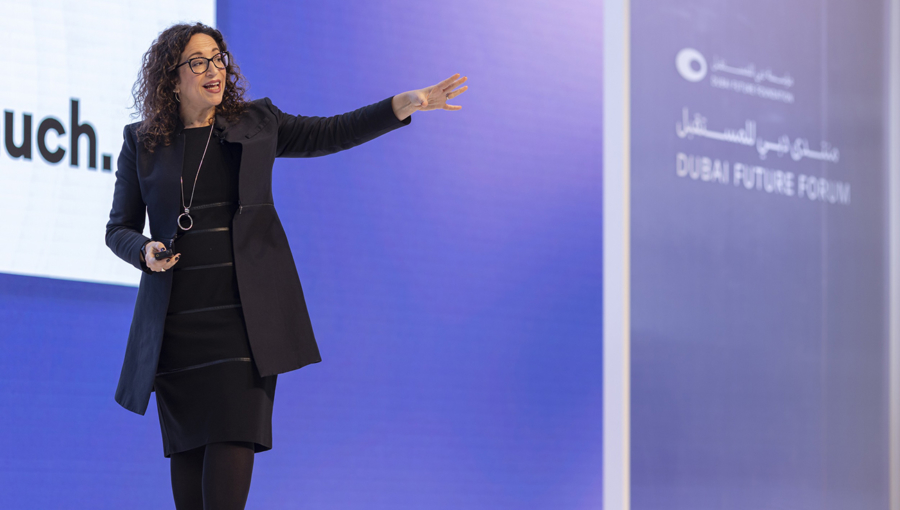Amy Webb: Dubai is a rare exception where foresight is a key part of government decision making.
“Governments, businesses and societies are too preoccupied with the present to implement actionable foresight that leads to strategies in mitigating risks and enabling growth,” said Professor Amy Webb, Founder and CEO of Future Today Institute, at the inauguration of the Dubai Future Forum, where more than 400 of the world’s leading futurists assembled to discuss the world’s trajectory.
“Too many of us are thinking like ‘now-ists’, not futurists,” said the award-winning author during her keynote session, titled ‘Why Must Foresight Evolve?’
‘Nowism’ is a problem incubated in uncertainty and fear,” Webb added.
Referring to nowism as a “virus”, she believes that people should steer away into strategic foresight.
She noted that foresight has never been more important than it is now, even though it currently isn’t creating the impact and results that the world is after. “If [foresight] was working, we wouldn’t be facing a climate catastrophe. There would be climate action, not just climate scenarios,” she said, emphasizing that “foresight education is the antidote to the nowism virus”.
On the other hand, she added that there are some governments developing leading models that incorporate foresight at the highest levels.
“You are sitting at the epicenter of foresight on the planet. In the mid-1800s, Dubai was a fishing village. Leadership at that time saw a vision to transform it into a thriving global community. They welcomed foreigners into the community and when oil was discovered, Dubai’s leaders didn’t just stop. Instead, they developed an ambitious long-term vision for social projects and economic development. That commitment to foresight resulted in one of the world’s most vibrant cities with one of the most progressive societies. That is modern day Dubai.” Webb said.
“Dubai is a rare exception where foresight is a key part of government decision making. If there was more foresight at a government level globally, governments would be more comfortable with uncertainty, they would think the unthinkable and they would create a strategy for mitigation and growth.”
Webb concluded, “This is the Museum of the Future, but really, it is a call to action. To get everybody thinking about the future.”
The Dubai Future Forum, running from 11-12 October, is the world’s largest global gathering of futurists. It is hosting more than 400 international participants including technology experts, scientists, innovators, and specialists in various high-skilled fields.
Organized by the Dubai Future Foundation, the Forum supports Dubai’s future agenda by providing new networking and community building opportunities for global thought leaders to convene and design collaborative solutions for an inclusive and sustainable future. Dubai Future Forum is hosting more than 70 speakers and 45 global institutions at the Museum of the Future as a new foresight strategy.
